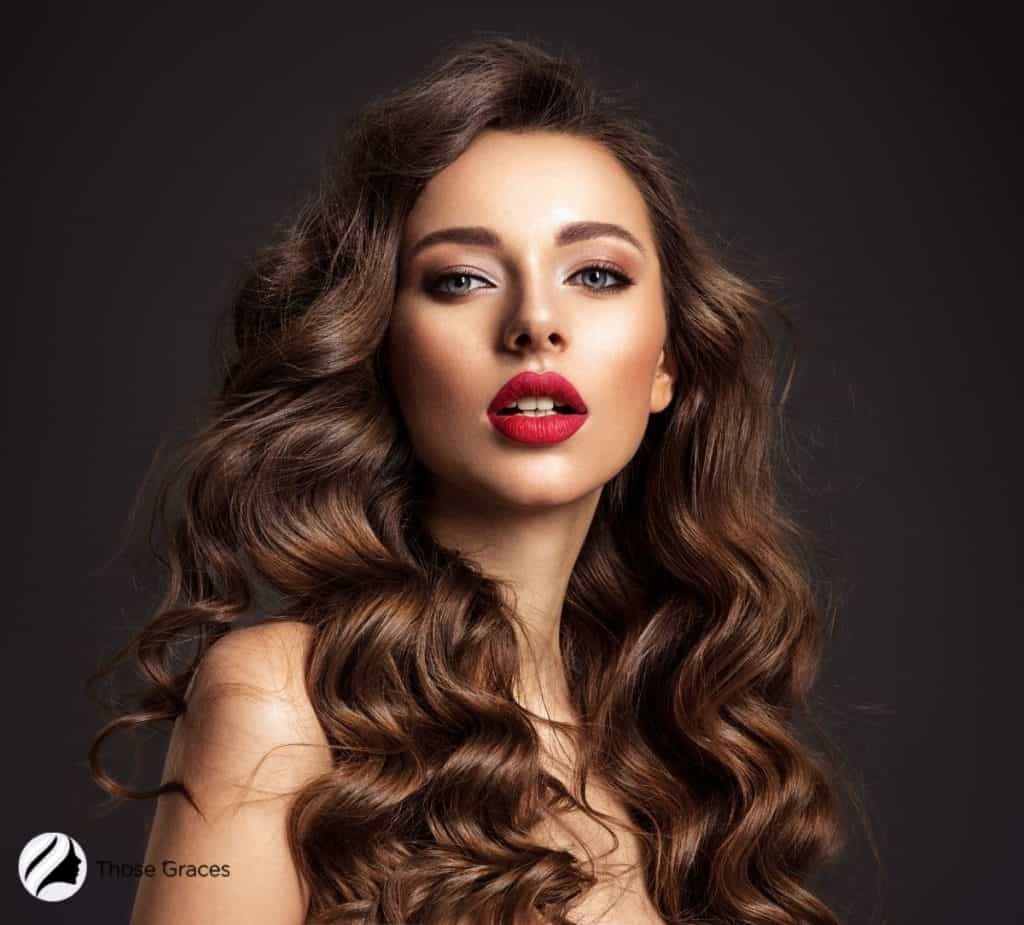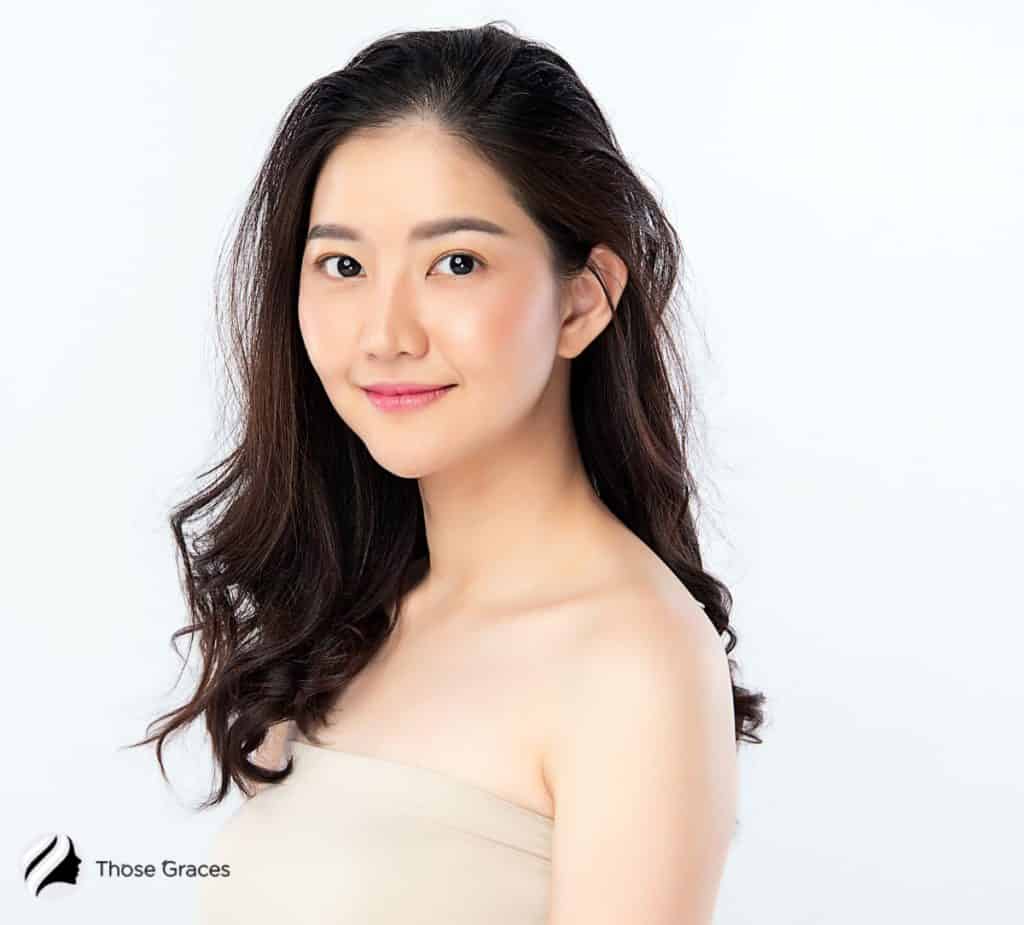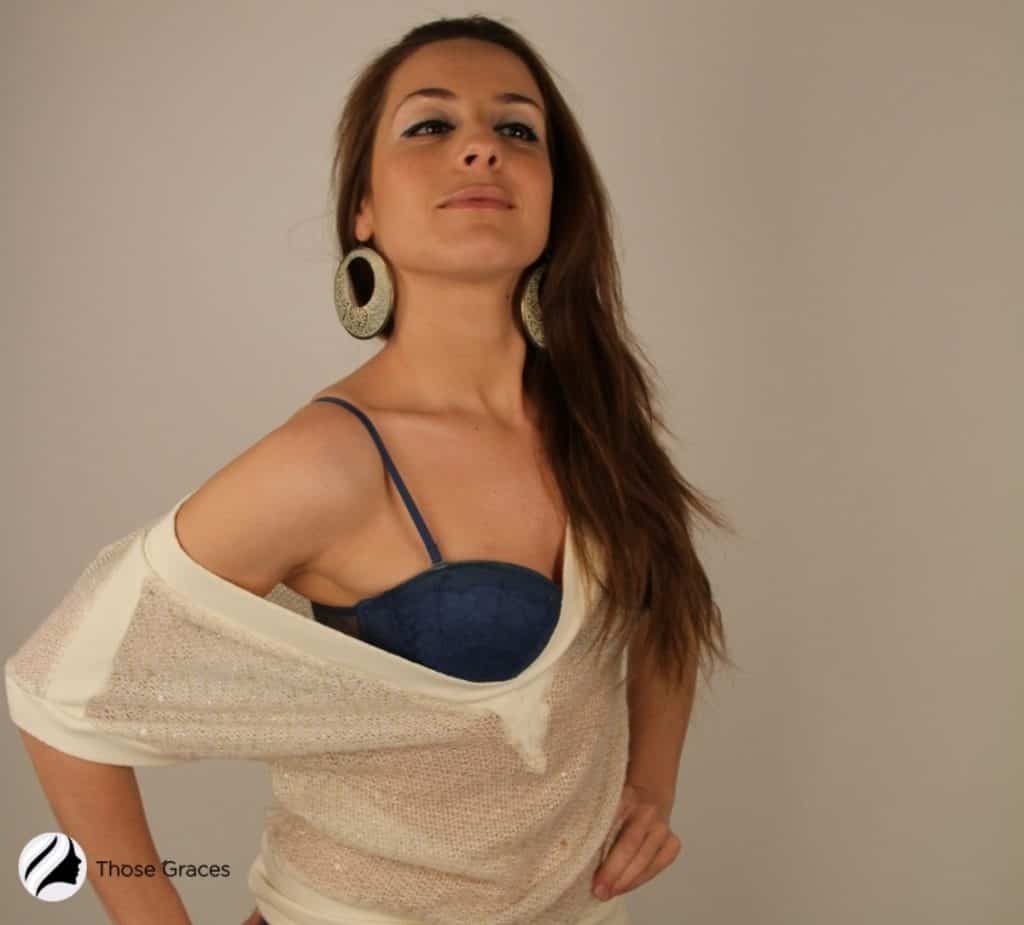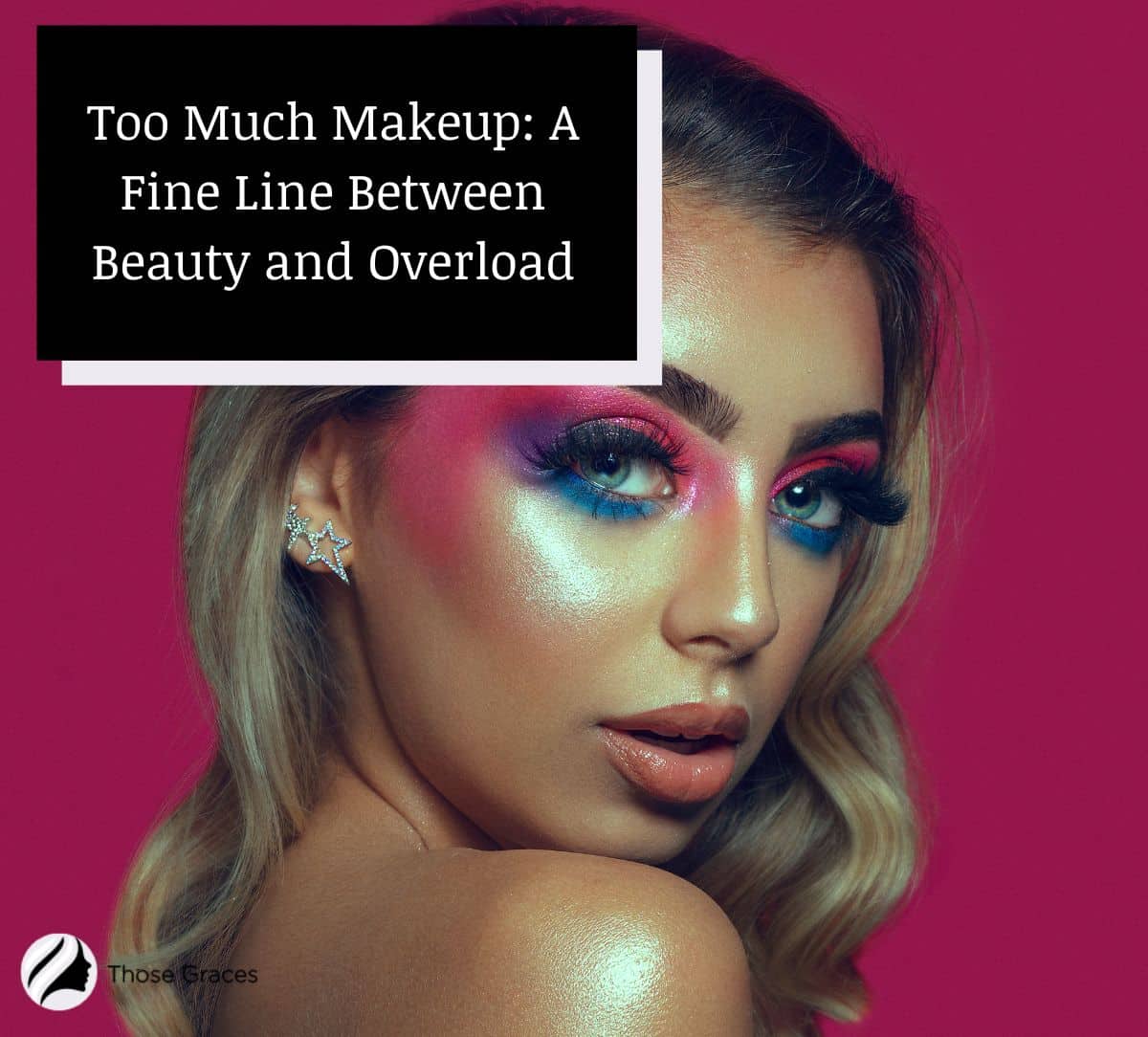Ever looked in the mirror and wondered if you are pushing the boundary and wearing too much makeup?
Worried your dramatic smokey eye is verging on early Halloween makeup?
Luckily, too much makeup is primarily subjective, but there’s also objectivity — so don’t go overboard!
If you’re hooked already (I know you are!), keep reading to delve deep into how much is too much with makeup…
Table of Contents
Key Takeaways
- “Too much” makeup is a subjective concept shaped by societal norms, cultural preferences, and individual skin tones.
- Achieving a natural and flawless look requires expert knowledge and skills from a professional makeup artist.
- Embracing your unique skin tone and finding a makeup routine that enhances your natural beauty is the key to feeling confident and beautiful.
Definition of “Too Much” Makeup
The legendary fashion expert and businesswomen Coco Chanel’s famously said, “If you’re sad, add more lipstick and attack [1].”
It’s evident that the empowering effect of makeup and a swipe of bright lipstick positively impact people, but how much is exactly too much?
The definition of “too much” makeup is highly debated and subjective in cosmetics companies.
It’s like a tightrope between embracing your natural beauty and transforming into a glamorously made-up version of yourself.
Who hasn’t gone a little overboard with the makeup brush at some point in their relationship with cosmetics?
It’s a delicate balance that can often result in the infamous “cake-face” look that nobody wants to see.
If you’ve ever wondered, “Does makeup damage skin permanently?” it’s essential to approach your beauty routine with self-awareness and a light hand.
Finding the sweet spot between enhancing your features and overdoing them is within reach, ensuring that your relationship with makeup remains positive and beneficial for your skin.
So Why Do Women Choose To Wear Makeup?
Women often wear makeup to conceal imperfections, attract a mate, and as an intersexual competition tool to enhance their attractiveness.

Those who wear makeup are judged more attractive, prestigious, and healthier [2]!
So women often use makeup to make themselves look more attractive.
However, individual people overestimate the ideal amount of makeup to wear (in order to look most attractive) when they apply it themselves [3].
Jones et al. (2014) found that people generally cannot accurately judge others’ cosmetic preferences [3].
Women are likely wearing levels of makeup that they think appeals to the preferences of other people, especially men but also other women.
Both men and women assumed that men would prefer a lot more cosmetic use than women on a woman’s face. In this study, men and women had similar cosmetic use preference levels [3].
Both men and women significantly overestimate how much makeup others would prefer.
The models in the study wore significantly more cosmetics than the observers’ stated preferences and even more makeup than the observers estimated others would prefer.
This suggests that the makeup models also misjudged others’ cosmetic level preferences [3].
Hey, if you’re still wondering why to, check out this quirky little video about the real reasons women wear makeup:
How Light And Heavy Makeup Can Change Your Face
Tagai et al. 2017 explain that makeup can alter the symmetrical balance of the face, how the eyes and mouths appear configured, and the skin color and texture [18].
Heavy makeup manipulates the face more than light makeup [18].
Lighter makeup looks are typically associated with femininity and softness.
For example, natural, light, and glossy-looking lips and skin (signaling health and enhancing femininity), subtly filled-in eyebrows, and natural-looking eyeshadow.
Heavy makeup is much more noticeable and typically exudes glamorousness and coolness.
Often glamorous makeup features matte skin with dramatic dark colors on the eyes and lips with harsh edges and lines [18].
Get ready to bat those lashes with confidence by checking out our guide on “how to apply lash serum.” And if you’re looking to add some gothic flair to your makeup routine, be sure to explore our recommendations for the best “goth makeup brands” on the market.
Finding the Right Balance
‘Attractive’ typically describes norms of a ‘feminine’ look, while sexualization refers to a sexy appearance emphasizing sex appeal and sexiness.
Smolak et al. (2014) found that college women dressed up attractively (in light makeup and well-fitted clothing) for day-to-day wear [6].
These same women said they dress up ‘sexy’ for parties at the weekend (heavy makeup, low cut dress, tighter clothing). Wearing heavy makeup can be a part of self-sexualization [6].
Graham and Jouhar (1983) found that all cosmetics were deemed more attractive at nighttime than during the day [7].
Heavier makeup can be appropriate in specific settings (for example to look sexier on a night out).
However, wearing heavy makeup if it is not applied well can negatively affect attractiveness than using no makeup at all [7].
Are you tired of sifting through countless makeup options with no luck? Look no further than our article on the best makeup for senior ladies.
Personalizing Your Routine to Fit Your Unique Skin Tone and Features
Light Or Heavy Makeup Alters How Attractive You Look
In a study by Cox and Glick (1986), 7 women aged 22 – 30 applied various amounts of makeup (none, moderate, or heavy) [8].
Fifty-nine students viewed 2 or 3 pictures of these women and evaluated how sexy, feminine, attractive, motivated, emotional, and decisive these women were.
The raters changed their perception of the woman’s external characteristics depending on the level of makeup she wore.
Evaluations of more fabulous sexiness, femininity, and attractiveness are all positively correlated with more makeup use [8].
Etcoff et al. (2011) also evaluated how perceptions of qualities (competence, likability, trustworthiness, attractiveness) change depending on the levels of makeup worn by a woman in a photograph (natural (none), professional (moderate), or glamorous (heavy) [9].
Cosmetics use correlated positively with all factors (competence, likability, attractiveness, trustworthiness) [9].
The authors suggest that if you are trying to impress a date, wearing heavier makeup can help you look sexier, more feminine, and more attractive.
Their finding revealed a significant difference in perceived attractiveness between the ‘no makeup’ look, moderate makeup, and heavy makeup style.
Those wearing moderate and heavy looks were perceived as a lot more attractive.
Plus, there was little difference in perceived attractiveness and femininity between women wearing moderate makeup and heavier makeup [10].
These results suggest that once a certain threshold of makeup usage is reached, perceived attractiveness and femininity remain pretty constant [10.
Graham and Jouhar (1981) investigated the impact of makeup on perceived appearance and personality [12].
Men and women rated photographs of four women (all rated beforehand as of average attractiveness) [12].
They rated these women as more feminine, cleaner, tidier, and physically attractive when wearing makeup than without makeup.
Additionally, they were perceived to be more organized, posed, popular, secure, sociable, and interesting [10].
Looking for makeup inspiration to go with your black dress? Don’t forget to check out our article on formal makeup for black dresses for some great tips and tricks.
Lighter Makeup Is Often More Attractive Than Heavier

In Tagai et al.’s (2016) study, 38 Japanese women rated 36 other Japanese women’s levels of attractiveness with no makeup, a light application of makeup, and heavier makeup [11].
The light application was rated the most attractive, with the heaviest application in second, and the no-makeup faces were deemed least attractive [11].
The authors hypothesize that heavy makeup could be more memorable than the person’s actual facial features, while the lighter application enhances the attractiveness of the facial features [11].
Check out this video for more tips:
From Natural Glow to Overwhelming Glam:
Full Face
Mulhern et al. (2003) revealed that the kind of makeup worn influences perceived attractiveness [13].
Women were deemed more attractive with a full face of makeup compared to no makeup at all.
Eye Makeup
Makeup only on the eyes had a bigger effect on perceived attractiveness than just—foundation makeup. Both eye and foundation makeup influenced attractiveness more than lip-only makeup [13].
Lipstick Colors Matter
Guéguen (2012) found that women wearing red lipstick were approached more in a bar setting than women wearing no lipstick or other colors like light pink and brown [14].
Exploring the Connection Between Excessive Makeup and Sexualization
Research conducted by Bernard et al. (2020) revealed the following [15]:
Women who wore eye-makeup-only were judged to be wearing more makeup than those in the lipstick-only condition, and the latter was also judged to be wearing more than those with no makeup at all [15].
Those with the eye-makeup and lipstick only were judged as sexualized to the same degree, and both were judged to be more sexualized than those without makeup.
In the eye-makeup-only condition, viewers were focused more on the eyes, while they were focused more on the mouth in the lipstick-only condition [15].
Faces wearing heavy makeup were rated as more sexualized than those without makeup. Yet, heavy makeup was found to have a tiny effect on sexualization ratings [15].
An earlier study by Batres et al. 2018 also examined the relationship between makeup and sociosexuality [16].
Women perceived to be wearing more makeup were rated (by men and women) as more attractive and having a less restricted sociosexuality than women with less makeup.
The more makeup is worn, the more that person was perceived as comfortable with casual encounters with different partners.
However, the rated level of attractiveness fully explained the link between more makeup and sociosexuality for the male raters [16].
Unpacking the Connection Between Increased Makeup and Body Positivity
In a study, 38 female college students in the US took a body image survey and were photographed before and after makeup [17].
The women were more body image positive with the makeup on than without.
The more makeup is worn by the women, usually the more significant the difference in body image happiness between wearing makeup and no makeup [17].
Sixteen fellow college students rated the attractiveness of these women either with or without makeup.
The male raters rated the women less favorably without makeup than with makeup, but the female judges showed no significant difference [17].
Heavier Makeup Impacts Perceived Personality Traits
Investigating the Perception of Personality with the Increase in Makeup Use
Specific perceived personality characteristics negatively correlate with increased cosmetic usage. Different studies find different traits negatively correlate with increased makeup use.
Cox and Glick (1986) revealed that increasing makeup usage correlated positively with perceived sexiness, femininity, and attractiveness [8].
However, greater makeup usage is negatively (or non-correlated with) decisiveness, emotionality, morality, and likeability [8].
Self-presentation, introversion, conformity, self-consciousness, and anxiety were found to induce greater makeup usage [8].
Workman and Johnson’s (1991) research investigated the effect of the cosmetic level on first impressions [10].
This is especially true about femininity, attractiveness, morality, personal temperament, and personality traits. Wearing makeup had no impact on temperament or personality traits.
Additionally, there was a negative correlation between more makeup use and perceived morality. Certain perceived personality characteristics negatively correlated with increased cosmetic usage [10].
Introverts, Conformists, and The Anxious Use More Makeup
Fieldman, Hussey, and Robertson (2008) aimed to determine which personality traits are associated with three levels of makeup use (low, medium, or high) [19].

Extroverts typically use less makeup than introverts, and the authors state that this is because extroverts are more confident.
Conformists wear more significant amounts of makeup to blend in and not stand out in the crowd.
It’s possible to interpret these results as those wearing more makeup do so to try to cover up flaws or insecurities [19].
Scott (2007) found that when women experienced anxiety it led to greater cosmetic use [20].
This same study revealed that women with less confidence and those feeling insecure feel anxious with less makeup on [20].
Makeup & The Job Market
A woman’s level of makeup use impacts her perception of ability at the workplace.
In a classroom setting, those wearing “too much makeup” are assessed by team members, and the following results are evident:
They are more focused on themselves than on teamwork, more likely to provide low-quality work, not show up on time, and not be serious about the work [23].
Exploring the Impact of Gender in the Workplace on the Perception of Excessive Makeup
Cox and Glick (1986) found greater makeup use negatively correlated with the perceived performance ability of women applying for women-dominated jobs.
Increased cosmetic usage did not correlate with the perceived performance level of women applying for gender-neutral jobs [8].
Wearing a more significant amount of makeup can negatively affect your perception at work.
Kyle and Mahler (1996) found that women applying for professional roles wearing a greater amount of makeup or glamorous makeup were deemed less capable than those choosing little to no makeup [21].
Women wearing no makeup were assigned a greater starting salary than those opting for light to moderate levels of makeup.
These results show that women should not use makeup when attending job interviews or meetings to be treated more seriously.
However, all of the participants in this study were college students. Dynamics in a workplace with older adults may differ [21].
The Effect of Over-the-Top Makeup on Trust and Sales in Sales Positions
In another experiment study, people judged salespeople with glamorous or extreme makeup to be much less trustworthy than those with other levels of makeup – including none at all [22].
The more makeup the salesperson wears, the lower the perceived trustworthiness.
This effect results in lower purchasing intention and sales effectiveness.
More makeup predicted significantly less trust, and the less trustworthy the salesperson seemed, the less likely people were to buy from them [22].
Women salespeople with extreme or glamorous makeup styles were deemed significantly less trustworthy than when that same saleswoman wore no makeup or the natural look.
This was the case even controlling for gender, age, and disposable income of the buyer [22].
This suggests wearing little or no makeup is the best choice for female salespeople who want to make more sales.
Even moderate amounts of professional-level makeup present a possible risk of fewer sales, and very high levels directly damage sales performance for saleswomen [22].
The Impact of Makeup on Tip Earning for Waitresses: An Exploratory Study
Jacobs et al. (2010) attempted to determine whether a waitress’s makeup influenced tipping behavior [24].
Wearing cosmetics was associated with a significant boost in tipping from male customers compared to women without makeup [24].
First Impression Vs Closer Glance At Makeup Influences Co-Workers’ Opinions
Etcoff et al. (2011) found that cosmetics use correlated positively with competence, likability, attractiveness, and trustworthiness [9].
Makeup that indicates natural beauty was perceived as more socially cooperative and higher in warmth.
Also, those with seemingly enhanced attractiveness (dramatic makeup) did not appear more warm and cooperative [9].
This suggests that using makeup (and how much makeup you choose to apply) is a tool to influence the way you are perceived.
if you are trying to win people over or get a job, minimal makeup is optimal.
However, if you are trying to impress a date wearing heavier makeup can help you look sexier, more feminine, and more attractive [9].
Balancing Power and Shine: Analyzing the Effect of Lipstick Shade on Perceptions and Outcome
Following the Etcoff et al. (2011) study, one of the co-authors, Sarah Vickery, advised in an interview with the New York Times [25]:
“There are times when you want to give a powerful ‘I’m in charge here’ kind of impression, and women shouldn’t be afraid to do that.”
The Perception of Power and Dominance: How Makeup Impacts Women’s Professional Image
Mileva et al. (2016) revealed that women perceive other women who wear makeup as more dominant, while men view women who use cosmetics as more prestigious [26].
Some evidence suggests the impression of dominance is influenced by jealousy – that women feel more jealousy towards women wearing makeup.
Later, the authors explained that these results have implications for the labor market, especially job interviews.
If you are interviewing for a subordinate position with a female majority staff, consider wearing a natural makeup look.
If you want a job promotion, wear a more powerful makeup look (more eyeliner, deep lipstick), mainly when an interviewer is a straight man [27].
FAQs
What is considered “too much” makeup?
Can wearing too much makeup impact work performance?
How can one avoid wearing too much makeup?
Are there any famous women who wear too much makeup?
Conclusion
The debate on “too much makeup” is subjective and varies among individuals.
Some may prefer a natural look with minimal makeup, while others may enjoy experimenting with various makeup tutorials, using a foundation brush to layer different makeup colors on their face.
The key is to find a balance between your natural beauty and confidence.
Adding a pop of color with lip gloss or bold lip colors or creating a dramatic look with multiple layers of overall face makeup should not impact your self-esteem or perception.
Why’s that? Because the amount of makeup used should be an additional, a “helper”, and not for self-deprecation or judgment.
Ultimately, it’s all about finding the right balance and feeling comfortable in your skin.

Sources
1. Ross S. 43 Quotes About Makeup Any Beauty-Lover Can Relate To [Internet]. Byrdie. 2020. Available from: https://www.byrdie.com/makeup-quotes-4768957
2. Mafra AL, Varella MAC, Defelipe RP, Anchieta NM, de Almeida CAG, Valentova JV. Makeup usage in women as a tactic to attract mates and compete with rivals. Personality and Individual Differences. 2020;163:110042.
3. Jones AL, Kramer RSS, Ward R. Miscalibrations in judgements of attractiveness with cosmetics. Quarterly Journal of Experimental Psychology. 2014;67:2060–8.
4. Cosmetics S. Women’s Beauty Habits Exposed by NEW Stowaway Cosmetics Survey [Internet]. www.prnewswire.com. 2015. Available from: https://www.prnewswire.com/news-releases/womens-beauty-habits-exposed-by-new-stowaway-cosmetics-survey-300149858.html
5. Kunst A. Makeup: frequency of use by age U.S. 2017 | Statista [Internet]. Statista. Statista; 2017. Available from: https://www.statista.com/statistics/713178/makeup-use-frequency-by-age/
6. Smolak L, Murnen SK, Myers TA. Sexualizing the Self. Psychology of Women Quarterly. 2014;38:379–97.
7. Graham JA, Jouhar AJ. The Importance of Cosmetics in the Psychology of Appearance. International Journal of Dermatology. 1983;22:153–6.
8. Cox CL, Glick WH. Resume evaluations and cosmetics use: When more is not better. Sex Roles. 1986;14:51–8.
9. Etcoff NL, Stock S, Haley LE, Vickery SA, House DM. Cosmetics as a feature of the extended human phenotype: modulation of the perception of biologically important facial signals. PloS one [Internet]. Public Library of Science; 2019;6:e25656. Available from: https://www.ncbi.nlm.nih.gov/pubmed/21991328
10. Workman JE, Johnson KKP. The Role of Cosmetics in Impression Formation. Clothing and Textiles Research Journal. 1991;10:63–7.
11. Tagai K, Ohtaka H, Nittono H. Faces with Light Makeup Are Better Recognized than Faces with Heavy Makeup. Frontiers in Psychology. 2016;7.
12. GRAHAM JA, JOUHAR AJ. The effects of cosmetics on person perception. International Journal of Cosmetic Science. 1981;3:199–210.
13. Mulhern R, Fieldman G, Hussey T, Leveque J-L ., Pineau P. Do cosmetics enhance female Caucasian facial attractiveness? International Journal of Cosmetic Science. 2003;25:199–205.
14. Guéguen N. Does Red Lipstick Really Attract Men? An Evaluation in a Bar. International Journal of Psychological Studies. 2012;4.
15. Bernard P, Content J, Servais L, Wollast R, Gervais S. An Initial Test of the Cosmetics Dehumanization Hypothesis: Heavy Makeup Diminishes Attributions of Humanness-Related Traits to Women. Sex Roles. 2020;
16. Batres C, Russell R, Simpson JA, Campbell L, Hansen AM, Cronk L. Evidence that makeup is a false signal of sociosexuality. Personality and Individual Differences [Internet]. 2018 [cited 2019 Mar 19];122:148–54. Available from: https://www.sciencedirect.com/science/article/pii/S0191886917306293
17. Cash T, Dawson K, Davis P, Bowen M, Galumbeck C. Effects of Cosmetics Use on the Physical Attractiveness and Body Image of American College Women. The Journal of Social Psychology. 1989;129:349–55.
18. Tagai K, Shimakura H, Isobe H, Nittono H. The light-makeup advantage in facial processing: Evidence from event-related potentials. Hsiao J, editor. PLOS ONE. 2017;12:e0172489.
19. Robertson, et al. J. APA PsycNet [Internet]. psycnet.apa.org. Available from: https://psycnet.apa.org/record/2008-05654-004
20. Scott SK. Influence of cosmetics 1 Running Head : INFLUENCE OF COSMETICS ON CONFIDENCE Influence of Cosmetics on the Confidence of College Women : An Exploratory Study [Internet]. www.semanticscholar.org. 2007 [cited 2023 Feb 3]. Available from: https://www.semanticscholar.org/paper/Influence-of-cosmetics-1-Running-Head-%3A-INFLUENCE-%3A-Scott/f3e68d9b01c792961a0a8e9da89febd0fdfaf627
21. Kyle DJ, Mahler HIM. The Effects Of Hair Color And Cosmetic Use On Perceptions Of A Female’s Ability. Psychology of Women Quarterly. 1996;20:447–55.
22. Mittal S, Silvera D. Makeup or mask: makeup’s effect on salesperson trustworthiness. Journal of Consumer Marketing [Internet]. 2020 [cited 2023 Feb 3]; Available from: https://www.semanticscholar.org/paper/Makeup-or-mask%3A-makeup%E2%80%99s-effect-on-salesperson-Mittal-Silvera/4b9497b8c0618597065506b50aaa31c054a28ebb
23. Neu WA. Social Cues of (Un)Trustworthy Team Members. Journal of Marketing Education. 2015;37:36–53.
24. Jacob C, Guéguen N, Boulbry G, Ardiccioni R. Waitresses’ facial cosmetics and tipping: A field experiment. International Journal of Hospitality Management. 2010;29:188–90.
25. Louis CS. Makeup Makes Women Appear More Competent: Study. The New York Times [Internet]. 2011 Oct 12; Available from: https://www.nytimes.com/2011/10/13/fashion/makeup-makes-women-appear-more-competent-study.html
26. Mileva VR, Jones AL, Russell R, Little AC. Sex Differences in the Perceived Dominance and Prestige of Women With and Without Cosmetics. Perception. 2016;45:1166–83.
27. University of Stirling. How make-up makes men admire but other women jealous [Internet]. ScienceDaily. 2016. Available from: https://www.sciencedaily.com/releases/2016/06/160624155151.htm


